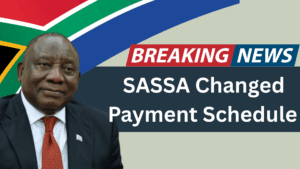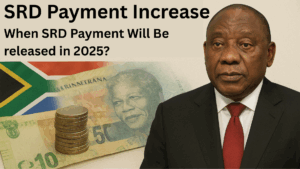The SASSA R500 Grant Deposit has created widespread discussion in South Africa, with many beneficiaries asking whether they have received it and what steps to take if they have not. This grant is part of the ongoing government efforts to assist vulnerable households facing financial strain.
SASSA R500 Grant Deposit
The South African Social Security Agency (SASSA) plays a vital role in providing financial support to millions of citizens. The R500 grant deposit in 2025 was announced to help individuals struggling with food, healthcare, and daily living costs. For many, this payment acts as an essential lifeline during challenging times.
However, some beneficiaries have reported delays or missing payments. Understanding eligibility, payment methods, and the steps to resolve issues is key to making sure no one misses out on this support.
Who is Eligible for the R500 Grant?
The R500 grant is aimed at low-income South Africans who meet specific criteria. Applicants must be over the age of 18, unemployed, or earning below a set income threshold to qualify. The program is not limited to one group but is designed for vulnerable households most affected by rising costs and limited job opportunities.
Eligibility is also linked to citizenship and residency. Only South African citizens, permanent residents, or registered refugees can apply. Applicants must not be receiving other government support that overlaps with this scheme, such as the Unemployment Insurance Fund (UIF) or the National Student Financial Aid Scheme (NSFAS).
By targeting those with the greatest need, SASSA ensures that resources are distributed fairly and effectively.
How Are Payments Made?
Payments for the R500 grant are made through multiple channels to give recipients flexibility. The most common method is direct bank transfer, where the money is deposited into the beneficiary’s registered bank account. This is the fastest and most secure option.
For those without bank accounts, payments can also be collected at designated retail outlets such as Pick n Pay, Shoprite, or Boxer stores. Beneficiaries can use their ID number and reference code to collect the cash securely.
Mobile money options are also being expanded to increase accessibility in rural areas. These different methods ensure that even individuals in remote locations can access their grant with minimal difficulty.
Why Might Payments Be Delayed?
While the system is designed to be efficient, delays do occur. Common reasons include outdated personal details, bank verification issues, or incomplete applications. In some cases, technical errors in the payment system also cause temporary setbacks.
Another factor is high demand. With thousands of applicants processed at once, some payments are naturally delayed as SASSA verifies eligibility to prevent fraud. This means beneficiaries may need to wait a little longer before seeing the funds reflected.
What to Do If You Haven’t Received the R500 Grant
If you believe you are eligible but have not received the R500 deposit, there are clear steps you can take:
- Check Your Status Online – Visit the official SASSA website and use the status-check tool by entering your ID number and phone number.
- Update Your Banking Details – Ensure that your bank information is correct. Incorrect or outdated details are one of the most common reasons for payment delays.
- Visit a SASSA Office – If problems persist, visiting the nearest SASSA branch with identification and application reference can help resolve issues directly.
- Contact the Helpline – The SASSA toll-free helpline can provide updates and guidance on missing payments.
Taking these steps can reduce waiting times and ensure you receive the support you are entitled to.
The Importance of the R500 Grant
For many households, the R500 monthly grant may not cover all expenses, but it provides a critical supplement for essentials such as food and transport. With unemployment rates remaining high and inflation affecting basic goods, this assistance makes a tangible difference for millions of families.
It also reflects the government’s commitment to tackling poverty and reducing inequality, especially among vulnerable groups who might otherwise have no steady source of income. By continuing these programs, SASSA provides not just financial aid but also hope and dignity to many South Africans.
Final Thoughts
The SASSA R500 grant deposit in 2025 is a lifeline for vulnerable households. While delays can be frustrating, understanding eligibility rules, payment methods, and problem-solving steps ensures that beneficiaries receive their rightful support. Staying informed and proactive is the best way to make the most of this vital program.
Thank you for reading and keeping updated about SASSA’s R500 grant in South Africa.
For More Information Click Here





